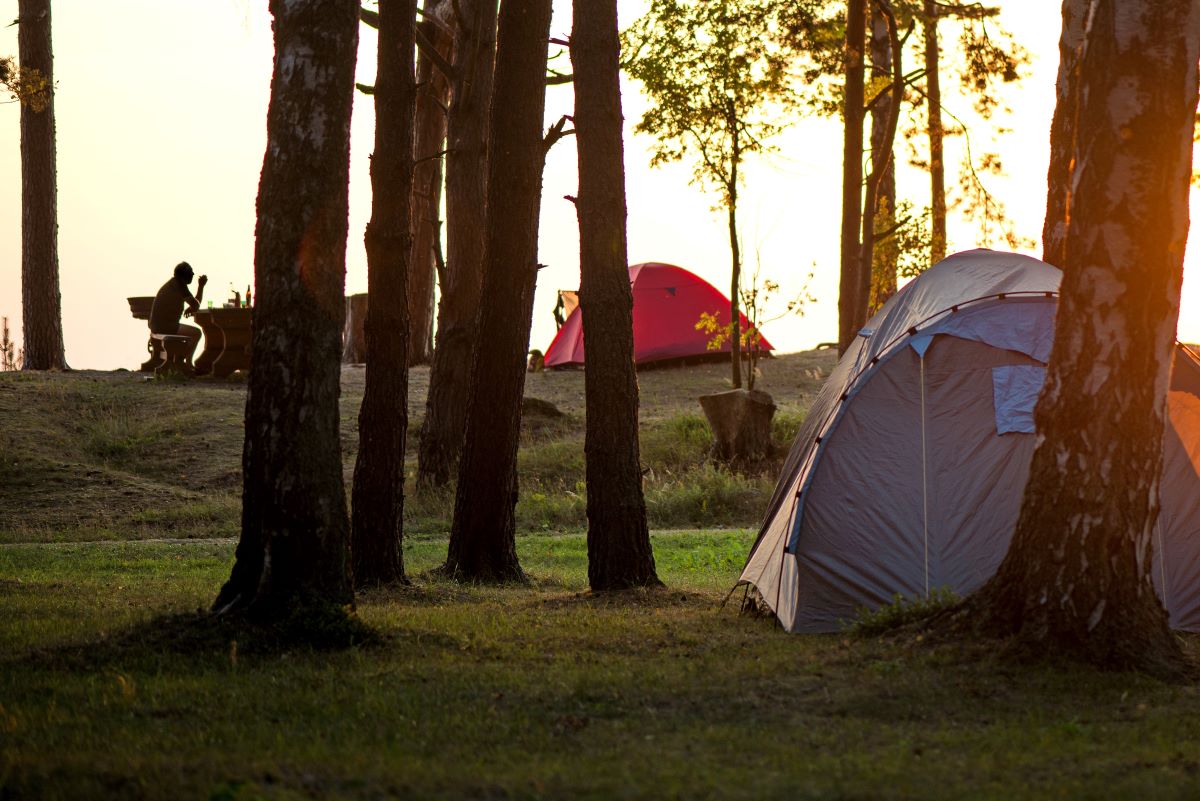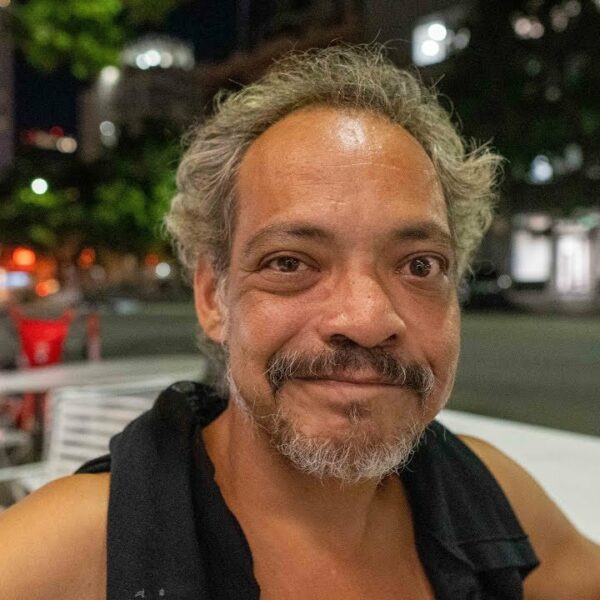The first night outside was almost like a camping trip. A coyote wandered into the camp, a snake or two observed us coldly, a black sedan drove in circles around the campground. We were on ‘vacation’ with no way home.
We had to move on up the coast the third night and put some distance between me and my past. By the end of the first week, we had our first night without anywhere to camp safely, without electricity, without running water. There comes the point of such exhaustion that it doesn’t really matter where you sleep. All you want is to be left alone for a few hours’ rest.
Ordinary people on vacation sometimes stop at rest stops and Walmart parking lots while on the road. America is a big place. Getting from A to B can be a case of thousands of miles.
We had no place to call home other than the small camper van we were traveling in and a couple of tents. Our best chance of going unnoticed by the housed world and the cops was blending into these people on the road.
When a cop asks: “Are you living in here?” they are not asking for any reason. The only safe answer is no, and hope that they let you get on down the road.
Freedom has to be purchased.
Safety, autonomy, rest, and protection are for those who can afford it. The destitute are seen as criminals for the simple fact of their homelessness.
Being poor is a crime, seen as a threat to modern decency. Being poor is dangerous mainly to those that endure poverty. Meanwhile, the rich housed people make themselves victims because the poor fail to be invisible enough for their liking.
Why do housed and rich people respond with anger and disgust when seeing rows of tents along San Francisco’s Embarcadero. Why is there no sympathy for these victims of an uncaring society who have no choice but to live on the streets?
There are easy solutions that are humane and safer for society in general. Still, these solutions are not championed because poverty is treated as a condition to be punished instead of cured.
Being poor is treated as an immoral state, as evidence of a reprobate mind, as a lack of self-control and hard work. Only the rich and housed get to state that alcoholism is a disease and that addiction is not the sufferer’s fault. Whenever I see someone state that they do not give money directly to homeless people because they will “just spend it on drink and drugs,” my heart breaks.
Being outside is grueling. It destroys any ability to hope or cope with life as it stands, which is a marathon, not a sprint.
It is not possible to go inside a room, shut a door, and cope with life. A room costs more money than can be obtained in a day. A cheap bottle of white port shuts out the world reasonably well and costs far less, or can be stolen and slid into a pant leg reasonably easily. Portable privacy.
Turning down drugs and alcohol when they are short-cuts to feelings and sensations that are otherwise unobtainable is more than most people can ask. Sitting sober, cold, wet, scared, hopeless, destitute, and hated by the world around you because things didn’t work out as well for you as it did for the passersby is a tall order. If only there were a pill that society could take to help them empathize instead of judge.
I could not afford to rent a home or afford a trailer in a park, nor could my little group of traveling unhoused people pass background checks. I couldn’t afford camping every day. Even if I could, most campgrounds have a two-week maximum on stays.
I would stay in parking lots of places I thought were either big enough to not notice me for a few nights, such as Staples or Walmart, or else that I thought perhaps would have some sympathy if I parked up to sleep for a few hours.
Churches always chased us out of their parking lots, as did the YMCA. I soon learned that their compassion was limited to preaching, not practice.
We became guerilla campers, pulling into deserted parking lots late at night. At first light, we would leave before anyone noticed.
Sometimes we had enough money to stay in a campground and try and pass as vacationers. State campgrounds have plenty of space and are basically deserted in winter. I used to look at the watertight yurts and cabins and cry. It felt so unjust that these were unused when my child, friends, and I needed somewhere to sleep.
In summer, people with houses would swarm the campgrounds, pushing out those of us that lived in them year-round. The rangers do not allow more than two weeks at a time in one campground. These rules create a nomadic group of unhoused people moving up and down the temperate west coast of America.
Little convoys of cars, trucks and homemade plywood trailers. One man who just had an ancient motorcycle and a tent, would drift from site to site. My neighbors were a loose community.
My favorite couple both had intellectual and physical disabilities. They kept their little camp neat and tidy, their dogs were well looked after, and they were friendly and kind. Sometimes, we would share a campfire, and I would offer them food if I had any spare. A couple of elderly veterans would always keep their distance but go through a sweet ritual of sharing new packs of socks with each other. A heroin-addicted older man would share his story of trying to get a detox or suboxone. He was constantly turned down because he had no address.
These were my friends. It was us against the world.
There is a skill to surviving for years outside. There is a colossal injustice to how people are treated who have no hope of pulling themselves out of their stuck situation.
Try and see the potential, the strength, and the injustice instead of allowing a knee-jerk reaction to the reality of being a human being traveling with no way home.












